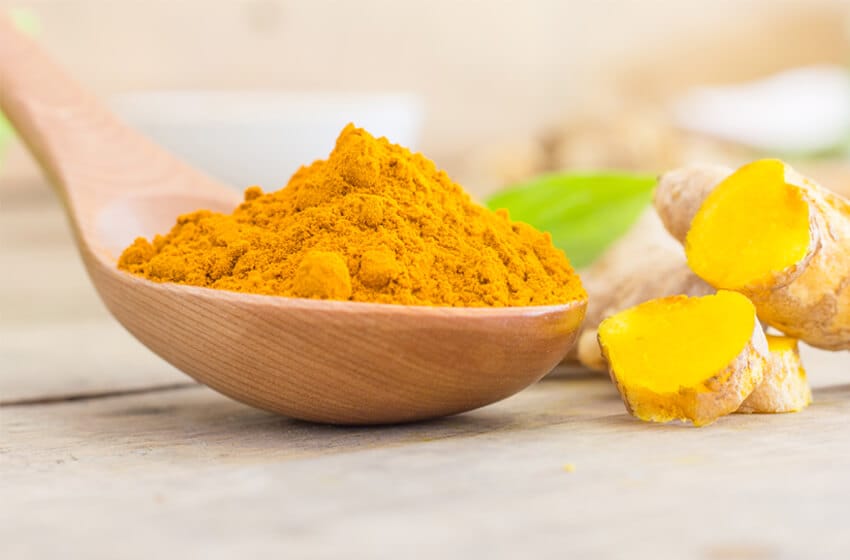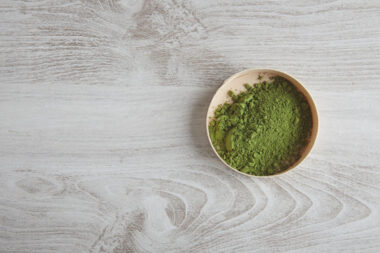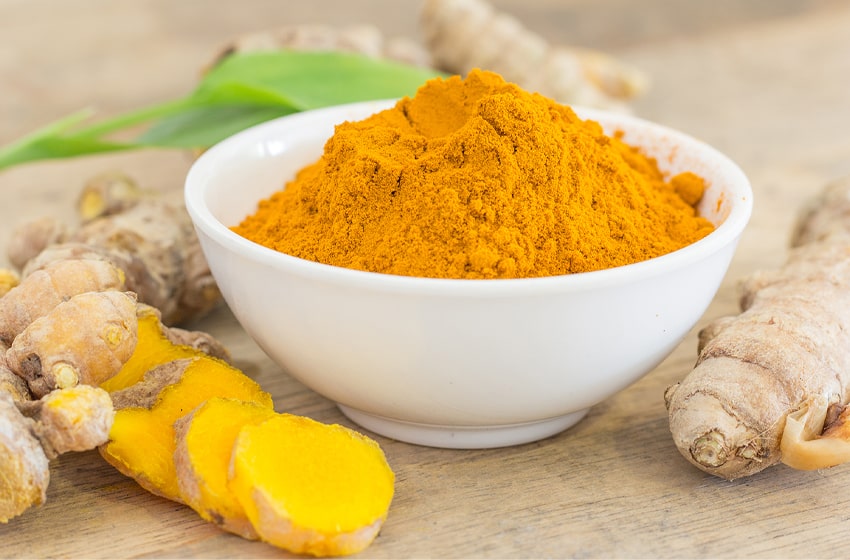Turmeric is a native Indian plant that has been used as a traditional spice and a medicine in India for thousands of years.
The roots of turmeric have been recommended in Ayurveda as well as traditional Chinese systems as a powerful medicinal herb.
The yellow ground powder of turmeric roots is extensively used in cooking as a dietary supplement, and even for enhancing skin beauty by women in India.
Curcumin, an active ingredient in turmeric, has incredible healing properties and is also found in the ginger family.
Turmeric (Haridra in Sanskrit; Haldi in Hindi) is a little bitter and astringent in taste. The warming nature of turmeric balances the Vata and Kapha in our body and its bitter taste balances the Pitta dosha.
It is available in the form of powder, tea, capsules, and extracts in the commercial market.
Want to know why turmeric is called the queen of spices? And what makes it the most versatile spice of India? Just keep reading.
In this article, we will explore the health benefits of turmeric, its nutritional profile, and how you can incorporate it into your diet.
Here are the Proven Health Benefits of Turmeric:

1. Promotes digestion
While turmeric gives a nice color and flavor to the food, it plays an important role in soothing its digestion too. Being rich in anti-inflammatory compounds, it helps in reducing the symptoms of bloating.
In ancient Ayurvedic texts, turmeric is mentioned as a healing agent for digestion. This alerted modern science to dig deeper into the benefits of turmeric herb.
2. Boosts immune system
Turmeric is one of the best natural antioxidants. These compounds fight and protect your body’s free radicals and help boost your immunity.
Curcumin, a powerful antioxidant found in turmeric, is known to have effects similar to anti-inflammatory drugs, without having any side effects.
3. Relieves joint pain and others
Turmeric has been traditionally used in India to promote the body’s innate ability to inflammatory responses. Our bodies have a natural system that helps heal itself and return to normal.
Curcumin is found to support this healing system as well as nourish the joints due to its anti-inflammatory properties.
4. Good for brain functions
Studies show that turmeric benefits both the body and the brain. Curcumin found in turmeric can be effective in reversing many brain diseases like stroke and dementia.
It boosts levels of brain hormone (BDNF), which increases neuron growth and prevents age-related decline in memory and brain functioning.
Also read: Health Benefits Of Moringa: Why It Is Called Tree Of Miracles
5. Improves liver functioning
The antioxidant effect of turmeric can help prevent your liver from being damaged by toxins. People who take drugs for various health conditions might eventually hurt their livers.
This is called drug-induced liver disease. Turmeric can be medically used to treat digestive disorders and detox the liver.
6. Improves skin
Turmeric is anti-bacterial, anti-microbial, and antiseptic in nature. It can provide therapeutic benefits to the skin. That is why it is available in supplements and other beauty products.
Curcumin found in turmeric can help with the cleansing of skin as well as heal wounds more quickly.
7. Controls anxiety and depression
Curcumin in turmeric has shown potential antidepressant-like properties in a lab study. Anxiety and depression are often related to reduced levels of brain hormone (BDNF).
Some evidence shows that Curcumin can boost BDNF hormone levels in the brain and potentially control anxiety and depression.
8. Reduces cancer risk
Turmeric has been found beneficial in the treatment of cancer and may even prevent the risk. It affects cancer growth and the development of cancerous tumor cells at the molecular level.
Though some lab studies on animals have shown positive results, we still need more research in this field.
Also read: 9 Evidence-Based Health Benefits Of Green Tea
9. Promotes heart health
Curcumin in turmeric has a beneficial effect on heart health and may also help reverse many heart diseases. The key risk factor for heart attack and stroke is the clogging of arteries.
Recent studies suggest that Curcumin can prevent the development of clogged arteries and plaque build-up at the molecular level.
Nutritional Profile of Turmeric
One tablespoon of turmeric powder contains 29 calories and:
- 0.91 gm of protein
- 0.31 gm of fat
- 6.31 gm of carbohydrates
- 2.1 gm of fiber
- 0.3 gm of sugar
One tablespoon of turmeric serves:
- 26% RDI* of manganese
- 16% RDI of iron
- 5% RDI of potassium
- 3% RDI of vitamin C
*RDI = Recommended Daily Intake
How You Can Use Turmeric?
For Cooking
To cook with turmeric, add the spice to any of your favorite dishes after heating the oil. Turmeric is used in almost all Indian recipes.
You can add it to stir-fried veggies, rice and legumes dishes, shakes, as well as smoothies.
Make sure you use an adequate amount of turmeric as using too much will give your food a strong bitter taste and a dark golden color.
For Skin
Turmeric can be used as a part of enhancing skin beauty. Make the paste of turmeric by mixing it with warm water and apply as a mask as required.
For added moisture, you can add an equal amount of milk or honey to the mixture to avoid dry skin.
For Supplement
You can use turmeric as a part of your daily supplement. Simply add ¼ teaspoon of turmeric powder into a glass of warm milk with added honey and drink it.
Turmeric is also available in the form of tablets and tea bags. If you usually have a shortage of time or travel a lot, the latter option can come in handy.
Image Credit: Freepik

Hello reader, I’m Abhishek Shankhwar, a mental health & wellness enthusiast and a digital marketing specialist by profession. As a passionate health and wellness writer, I feel obligated to inform, inspire, and reach out to so many people. In the meantime, you’ll always find me reading books, writing inspiring content, and cooking delicious food. Connect with me on LinkedIn.





































